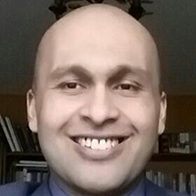Just over 10 years ago. I lost someone dear to me. He was of advanced age no doubt, but he was the paragon of health and still is talked about in such terms in our family’s lore.
 He had the ability to eat moderately no matter how delicious the meal was.
He had the ability to eat moderately no matter how delicious the meal was.
This was due to the fact that he was raised in relative poverty and had to survive on just the bare essentials.
Malaysians probably know them as rice, rasam (pepper soup, Indian style) and a little salt fish. That was his actual staple back in the day.
I suppose good health follows when one simply cannot afford to overeat.
I was especially close to him because he raised me and I was in awe of his ethos and virtue. He was a true family man and actually raised his nephews and nieces.
In the last week of his life, he had some minor issues but a visit to a local hospital was what that may have ended his life.
I spoke to him on the phone that fateful morning and he was in good spirits. He even noted down my call in his diary.
However, that evening he complained of chest pains and was taken to a hospital. There he was subjected to a battery of tests, one of which was quite invasive involving a catheter.
This test apparently caused him a massive heart attack which ended his life. One could chalk it down to fate (“dah takdir, apa nak buat” as the Malays say) but I wonder what on the earth the medical staff were thinking.
Here was a man in his late 80s and they subject him to a very harsh, shock-inducing procedure. It was no wonder his heart gave way.
However, that was not the worst of it. Our entire family had lost our patriarch but the worst was yet to come.
The doctor in charge spoke to our family in such a callous, lackadaisical manner that when I heard what he said, I was flabbergasted with shock!
He said, “what do you expect, he (referring to my deceased family member) was at that age! How long did you expect him to live?!”
This statement is something which will remain in my family’s collective memory forever. Even I who wasn’t actually there remember it as if it is a scar on my soul. My family was then given an hour to remove his body. Like a piece of meat to be disposed, I guess.
Ten years on, another close family member had a distressing visit at the doctor. Instead of carefully considering my family member’s feelings, the young doctor simply bulldozed through speaking in a very off-handed way.
The doctor even said that the necessary surgery may not even help the situation. The result was a very dejected patient whose spirit was severely dampened by such careless words.
The medical establishment are entrusted with our most fundamental aspect of existence – our health. With the access given to them (we give them permission to fill our bodies with medicine), they have the power to heal but also to kill us.
It is possible for them to make mistakes and administer the wrong dosages or recommend treatments which simply don’t work. Consequently, we give a great deal of emotional investment into our relationship with them.
Perhaps it is time for the medical community, if they are already not doing so, to consider a program where they may learn interpersonal skills.
I am not saying that all doctors are callous. My own personal doctor (called GP in the UK) is a perfectly nice gentleman and I often schedule my visits to coincide with a lull period so we may chat.
However, there are doctors who simply do not care about the patients’ feelings. Interpersonal skills would certainly help them in that regard.
Another thing which would help is the awareness that doctors can make mistakes. This is why we seek second opinions, just in case the first one is called into question.
This is by no means a slur on the medical community but rather the prerogative of the patient to seek an opinion as it is his life on the line. Doctors do disagree with one another and I’m sorry to say, are not above economic considerations.
Anecdotally, I have seen that government hospitals are far less likely to recommend surgery than private ones.
Government hospitals are also far more “efficient” in discharging a patient whereas private ones are far keener for them to spend a few more days. I wonder why this is?
As such, I feel that the medical establishment should practise as much care on the patient’s emotional well-being as they do on his or her physical health.
Tell the patient that the news isn’t the best thing they can hear at the moment but all is not lost. Console them never to lose hope.
Encourage to look at other avenues of medicine (even ones you disagree with because you’re not infallible).
In short, treat them as human beings, not as commodities to be worked on without due consideration for their feelings. – July 1, 2015.
* This is the personal opinion of the writer or publication and does not necessarily represent the views of The Malaysian Insider.


Comments
Please refrain from nicknames or comments of a racist, sexist, personal, vulgar or derogatory nature, or you may risk being blocked from commenting in our website. We encourage commenters to use their real names as their username. As comments are moderated, they may not appear immediately or even on the same day you posted them. We also reserve the right to delete off-topic comments